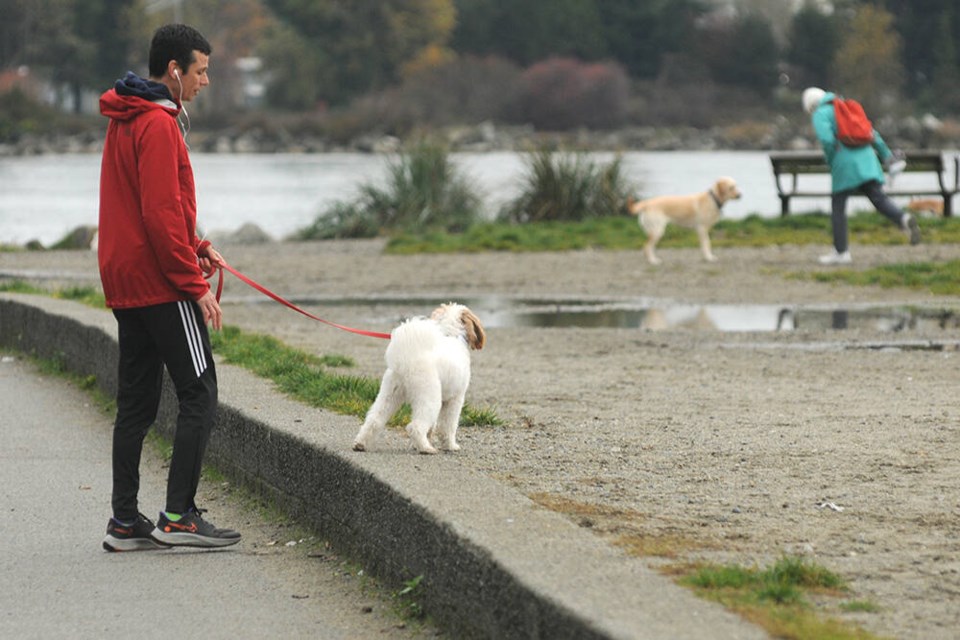When I wrote a couple of weeks ago about the broadened proposal for the Navvy Jack House reclamation, featuring an unanticipated adjacent waterfront restaurant as part of the project, some correspondents mistook the central criticism.
It wasn’t against having another place to eat, drink and socialize overlooking the great Ambleside vista. Who can argue with another evening eatery? Of course, of course, sounds like it’ll be a blast.
The issue here is the principle in politics of having a transparent process as you proceed. In this case, it’s the matter of how the district granted a lease for what we all thought would be a small bistro inside the Navvy Jack House, then entertained a more ambitious proposal without providing restaurateurs of the region an opportunity to vie in the market of bidders for the larger vision.
The argument from ADBIA, the Ambleside-Dundarave business group, that we need more such venues is not lost on anyone. We roll the carpet up too early at night, too many kitchens close at 9.
What is harder to understand is why the argument about using proper process to get to the goal is lost on the elected representatives so schooled in the importance of respecting that goal.
Process, and visibility on it, are important to the credibility of any institution, yet this West Vancouver council has a pattern of stumbling on or averting this, even if the outcome of the debate is predictable.
A simple, quite low-key case in point: rather than reviving a process earlier this year to debate a dog-walking proposal for the Seawalk, council went ahead with no additional public consultation, rather brazenly. Would it have hurt to ask the public for its opinion one more time, even if some councillors correctly asserted that the result would be a deeply divided opinion?
Please, don’t get me wrong, I think dogs have been a positive addition. Like the Navvy Jack bistro: good idea, but let’s properly float it and take time. Would it have been better launched after one more round of hearing people and their apprehensions (a couple of which have since been implemented)?
The most recent process issue arose a week ago at council involving a proposal to rezone and raise the height of a Clyde Avenue property.
We are approaching the early stages of a significant expansion of development under a Local Area Plan for Ambleside, but the specific block-by-block ingredients are going to be debated and publicly heard, and it is far from clear what that will yield.
Suddenly comes this proposal, which specifically says it’s aimed at getting done ahead of the larger plan. Why? What purpose does it serve? Who does it serve? The staff report recommended to proceed with public hearings on the proposal in advance of the plan, using as an argument it offers much-needed rental housing. Again, process seems an inconvenience here. Why the rush with this when there is a much larger issue of district rezoning that needs to be clarified?
The thorniest recent local process issue, judging by public outcry, involves the ongoing kerfuffle on the 3000 Park Lane property, and in hindsight it’s a textbook case of how more transparency might have yielded more community support – and perhaps even a better deal for district taxpayers.
As this publication has reported, it took a long time to find a buyer, and when one emerged, the district was asked to include the adjacent public walkway to the waterfront to consummate the deal. But when that decision faced council, it ought to have dawned that the process of selling district land was distorted by the request. At the very least, the conjoined parcel ought to have been put on the market – and advertised widely – if council were willing to sell off the walkway. Again, the principle of process ought to have been uppermost.
Once again, don’t get me wrong. Perhaps this is a solid opportunity to raise revenue in an era of limited options for council to mitigate the worst of the financial challenges to come. But it could have been even more lucrative to test the market. The mayor has pledged to bring a motion shortly to build the new public access within two years and keep the existing walkway open.
But so much fuss could have been saved by, yes, process.
Kirk LaPointe is a West Vancouver columnist with an extensive career in journalism. His column runs biweekly in the North Shore News.




